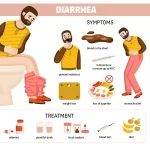Managing diabetes is essential to prevent complications and maintain good health. If you or someone you know has diabetes, here are some safety tips to keep in mind:
- Monitor blood sugar levels regularly: Check blood sugar levels as advised by your healthcare provider. Regular monitoring helps you understand how different factors, such as food, exercise, and medication, affect your blood sugar levels.
- Follow a healthy diet: Adopt a balanced and nutritious diet, focusing on whole grains, fruits, vegetables, lean proteins, and healthy fats. Limit the intake of sugary and processed foods, and avoid excessive alcohol consumption.
- Stay physically active: Engage in regular physical activity, as it helps improve insulin sensitivity and manage blood sugar levels. Consult your doctor before starting a new exercise regimen.
- Take medications as prescribed: If you are on diabetes medication or insulin therapy, take them according to your doctor’s instructions. Do not skip or modify your medication dosage without medical guidance.
- Educate yourself about diabetes: Learn about diabetes management, signs of high or low blood sugar, and how to respond to emergencies. Knowledge empowers you to take control of your health effectively.
- Regular medical check-ups: Schedule regular check-ups with your healthcare provider to monitor your diabetes and assess any potential complications.
- Manage stress: Stress can affect blood sugar levels. Engage in stress-reducing activities like yoga, meditation, or spending time with loved ones.
- Wear a medical alert bracelet: If you have diabetes, wearing a medical alert bracelet can be helpful in emergencies, as it informs others about your condition and any special needs.
- Carry snacks: Always carry a source of fast-acting carbohydrates, such as glucose tablets or juice, to treat low blood sugar (hypoglycemia) promptly.
- Stay hydrated: Drink plenty of water throughout the day to prevent dehydration, as high blood sugar levels can lead to increased urination.
- Quit smoking: If you smoke, quitting is essential, as smoking can worsen diabetes-related complications.
- Foot care: Check your feet regularly for any cuts, sores, or blisters. Diabetes can affect circulation and nerve function, making foot care critical to prevent infections and complications.
- Travel prepared: If you are traveling, pack enough medication, supplies, and snacks. Be prepared for changes in meal timing and physical activity.
- Seek support: Connect with diabetes support groups or seek support from friends and family. Managing diabetes can be challenging, and having a strong support system can make a difference.
Always follow the advice and recommendations provided by your healthcare team. Diabetes management is personalized, and individual needs may vary. Regular communication with your healthcare provider is vital to adjust your diabetes management plan as needed.

Read this Article Also:
If you don’t like this article/post please share your feedback.





